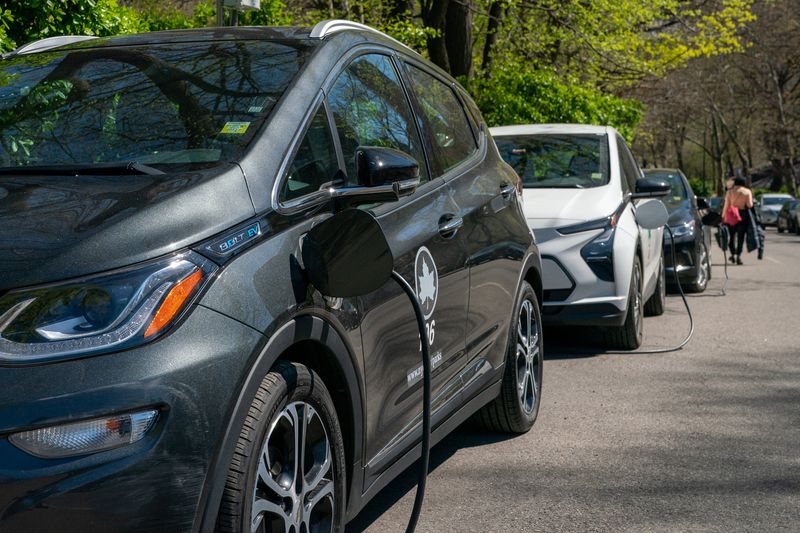By Jarrett Renshaw and Stephanie Kelly
NEW YORK (Reuters) - The Biden administration will abandon a proposal to include the electric vehicle industry in the U.S. biofuel blending program and withdraw potentially billions of dollars worth of tradable credits that had been attributed to the scheme, three sources familiar with the matter told Reuters.
Reuters had first reported in early May that the Environmental Protection Agency (EPA) was considering delaying the EV program over concerns the plan could trigger lawsuits. A final rule is set to be released later this month after review by the White House.
Scrapping the plan pushes the administration further away from allowing electric vehicles to generate nearly 2 billion credits under the U.S. Renewable Fuel Standard over the next two years, something companies such as Tesla (NASDAQ:TSLA) Inc have pushed for. The EV program would have been a boost to President Joe Biden's goal of electrifying the motor vehicle industry to fight climate change.
The EPA, which administers the RFS, said it was considering comments for a final rulemaking on biofuel blending mandates for the years 2023, 2024 and 2025 and could not comment further.
The White House, which is currently reviewing a final rule on the biofuel mandates, declined to comment.
The EPA proposed last year the inclusion of EVs into the RFS, in what would have been a major overhaul of an often contentious law that mandates that oil refiners must blend billions of gallons of biofuels into the nation's fuel mix, or buy tradable credits from those that do.
Most credits generated under the RFS are for blending liquid fuels such as corn-based ethanol into gasoline. Adding credits for power generated from renewable gas and then used for charging EVs would take the program in a new direction.
In last year's proposal, the EPA foresaw EV manufacturers could generate as many as 600 million credits in 2024 and 1.2 billion of them by 2025. Those estimates were included within the cellulosic credit pool in the proposal.
However, the EPA will remove those estimated volumes from a final rule that the agency is expected to release by June 14, the three sources said.

The EV plan represented the largest growth in the cellulosic credit pool in the RFS program history, roughly doubling the credits generated from 720 million this year to 2.13 billion by 2025, according to the proposal.
Those in the electric vehicle and renewable natural gas industries were hopeful that even with a delay, an EV program could still be passed by the end of the year.